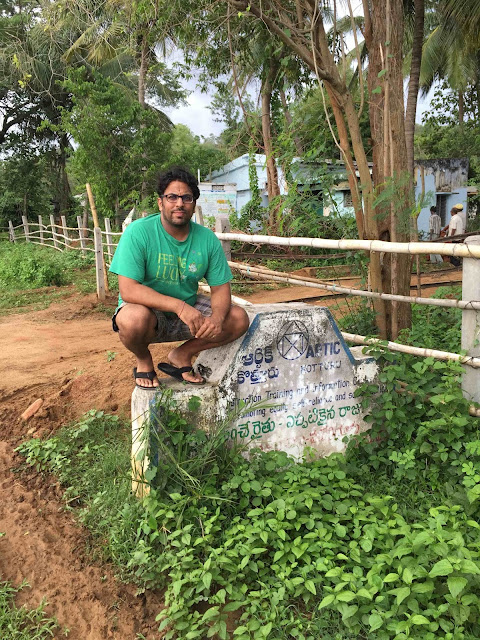By
Dev Kashyap, 2nd year MDP student
With
just a couple weeks left in my University of Winnipeg field placement in
south-east India, I can't believe how time has flown by. However, in
reflection, the past month has been a whirlwind of visits to 'Adivasi' or
Indigenous communities in and around our base of Kotturu, in the state of
Andhra Pradesh. Myself, along with my MDP classmate Manna Sainju and host
organization Appropriate Reconstruction Technology Information Centre (ARTIC),
have reached our goal of completing all key informant interviews and focus
group discussions with our selected participating Adivasi communities in the
month of July.
July
took us through the beautiful landscapes of three local rural counties or
"Mandals" as they are called in Andhra Pradesh; some of them
accessible only by rugged roads. Part of what we have learned revolves around
the similarities in Adivasi habitations in terms of the effects on them from
changes over the past 30 years: globalization; emerging technologies and
government programming and policies. What is certain is that all of these
communities embody resilience in terms of their day-to-day living. Things that
we take for granted in North America - such as constant electricity, piped
water directed to our homes and easy access to irrigation - are amenities that
require planning and hard physical labour in many cases here in rural India.
All
in all, I am grateful for my experience here, the assistance I have had in my
research from the team at ARTIC, and last but not least the willingness of the
research participants to contribute to my higher learning about the rural
experience of Adivasis in south Asia. Resilience is manifest in their processes
of living day-to-day here and embodied in the daily tasks performed by Adivasi
communities. Resilient communities carrying on in the face of externally-driven
changes.
 |
| Dev, Prakash, Yamuna and Shrimaiji from ARTIC, and the research participants from the community of Bommika, Andhra Pradesh |

